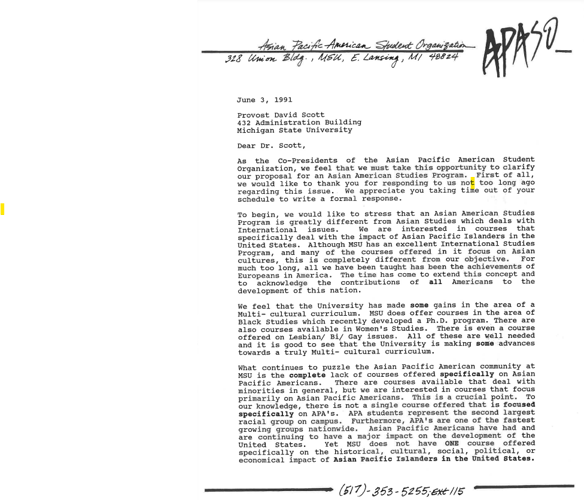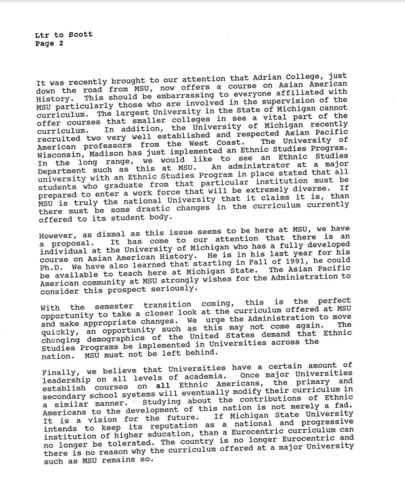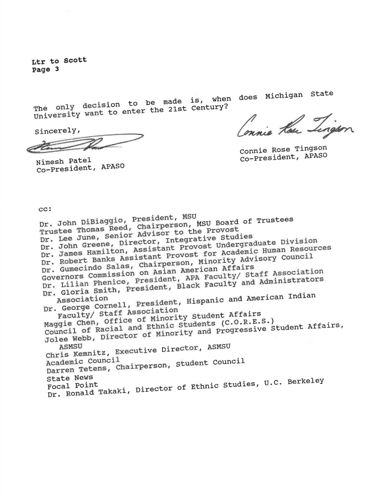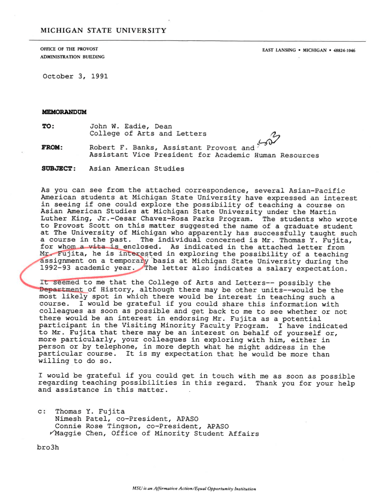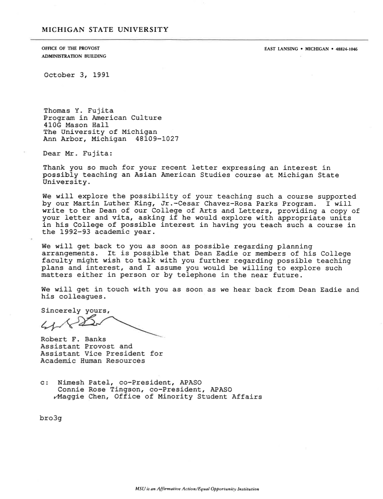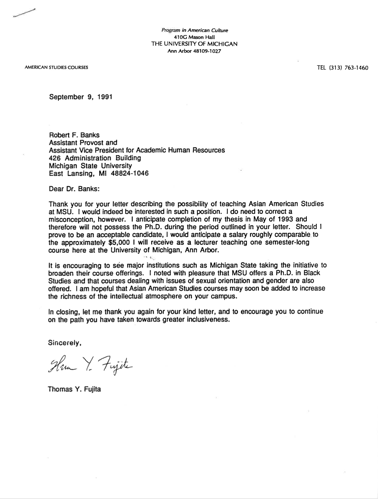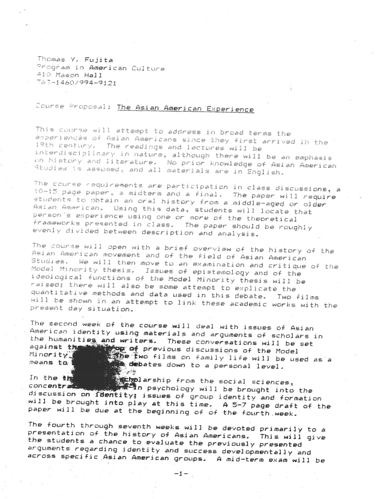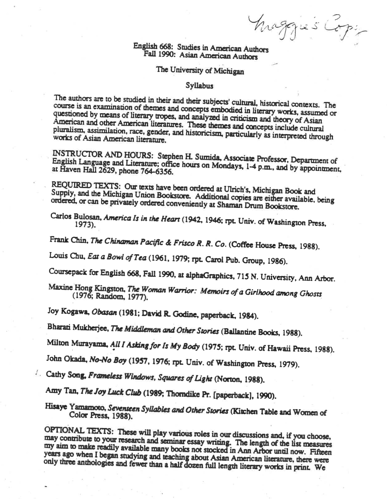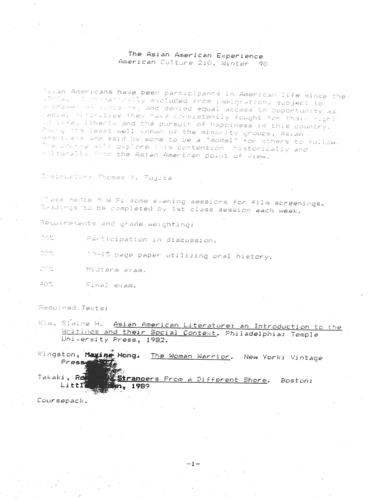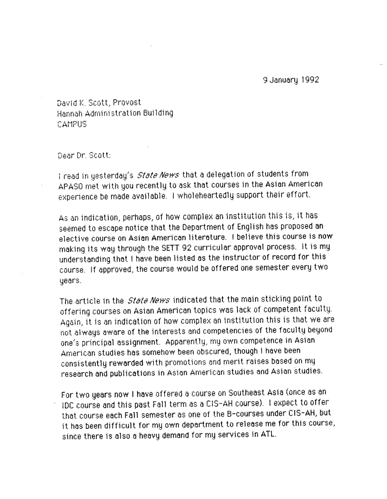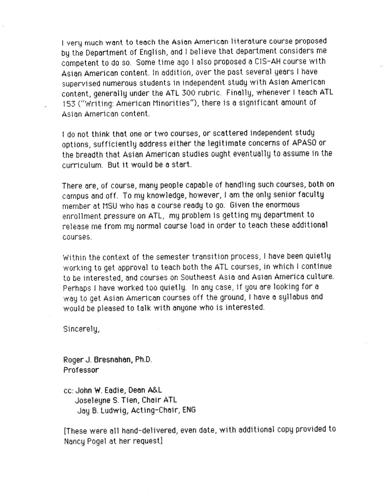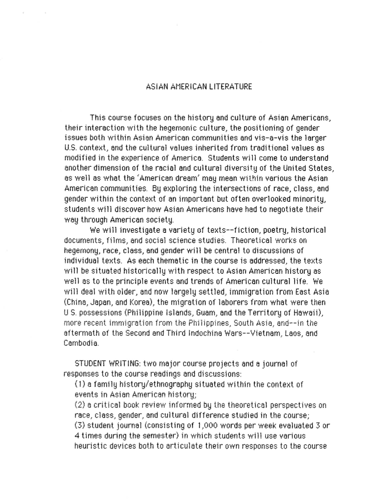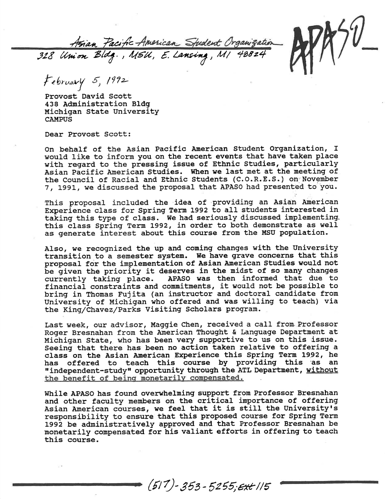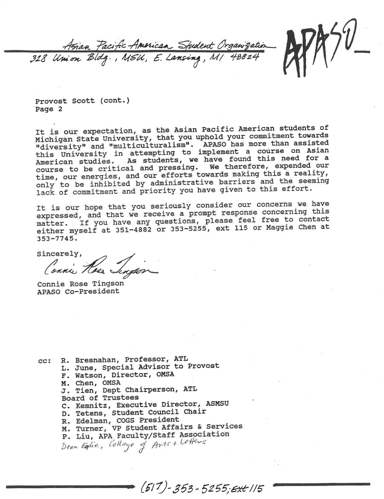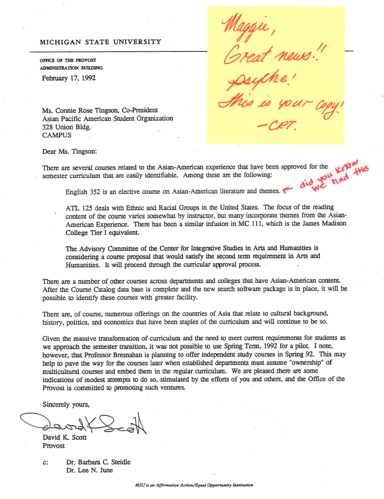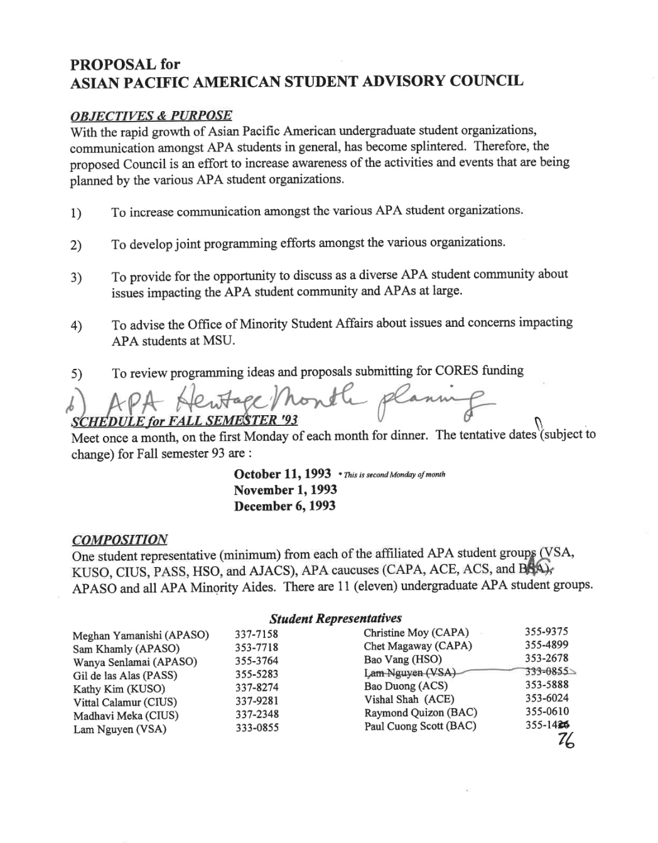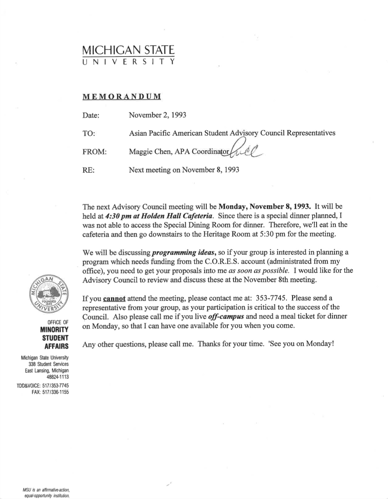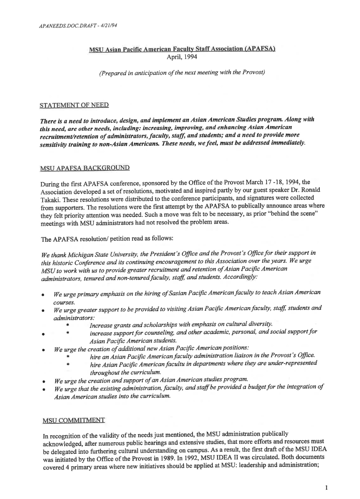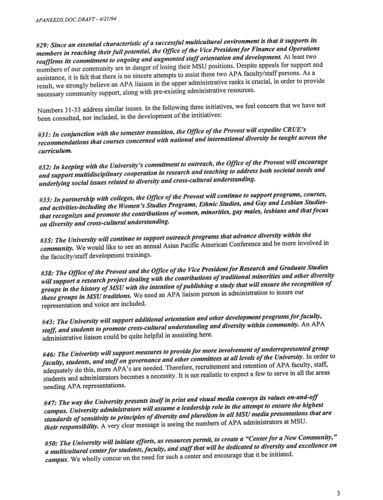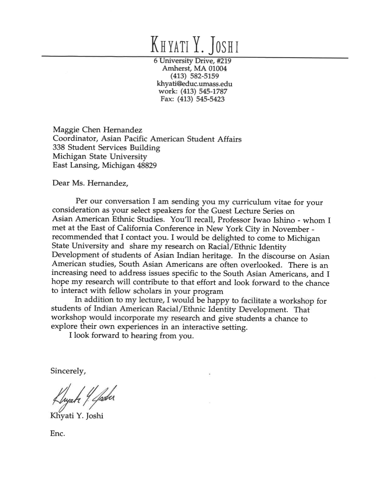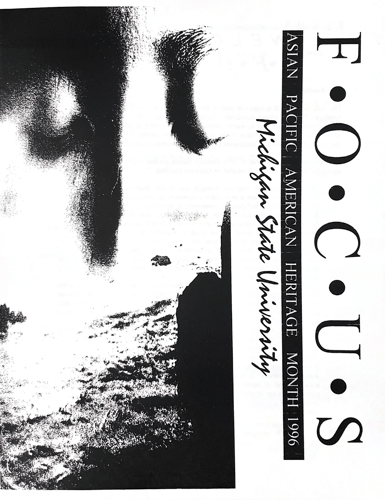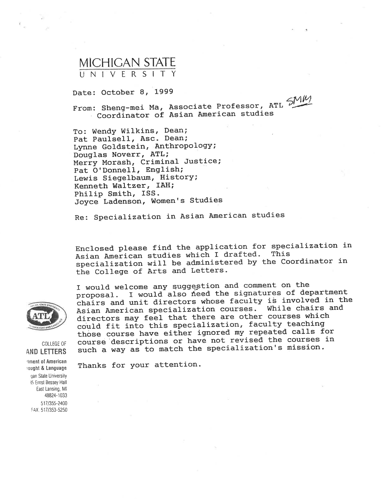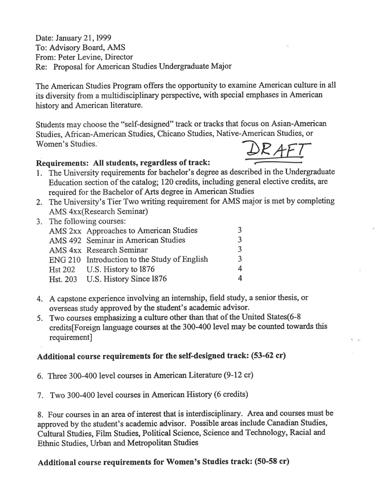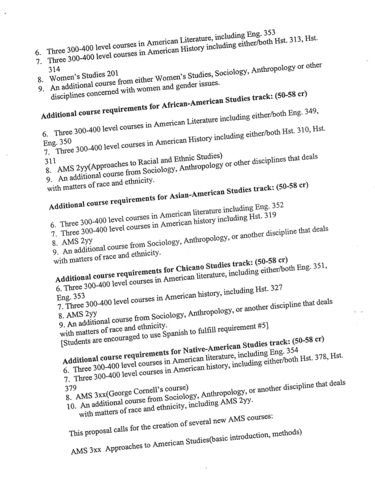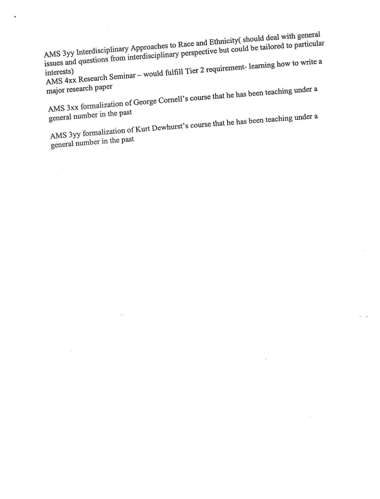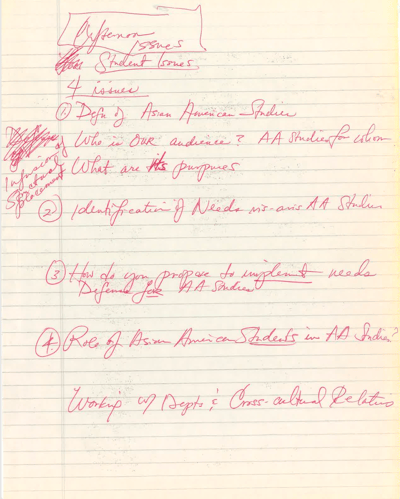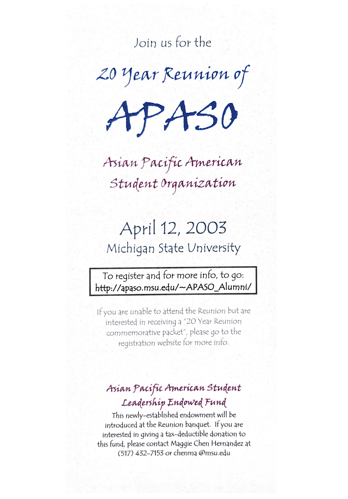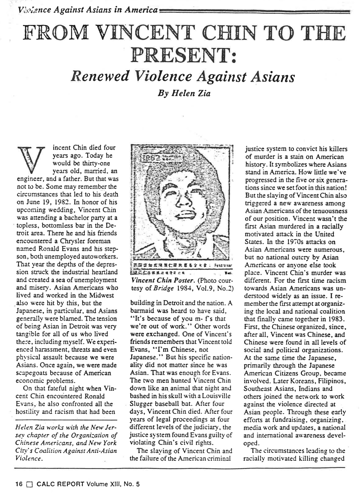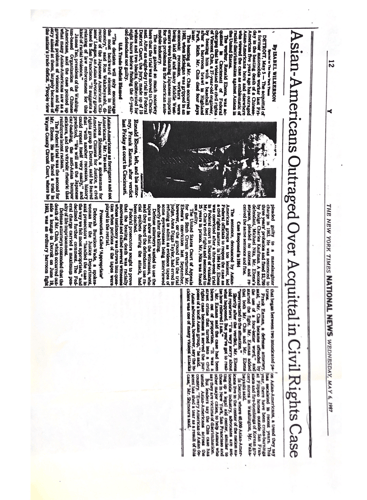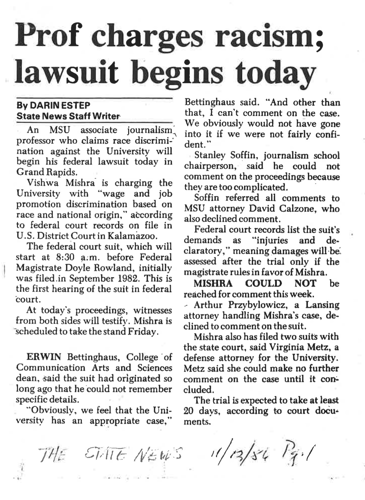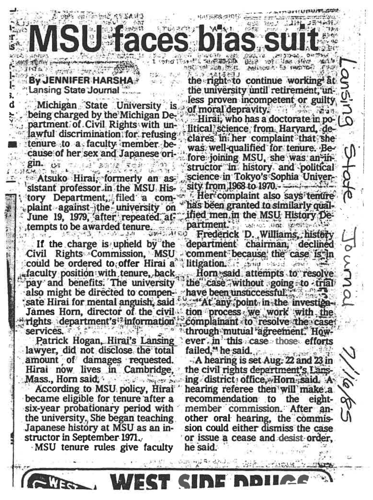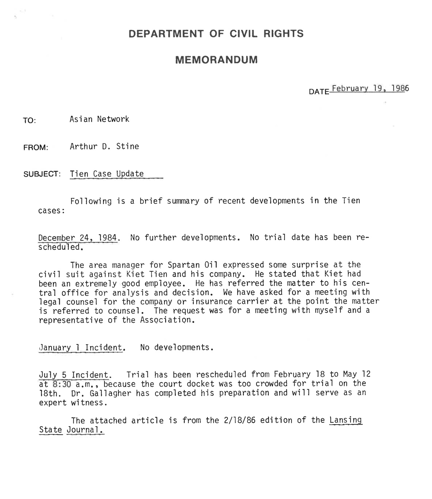The APIDA/A community constituted a significant presence at MSU long before the official establishment of the Asian Pacific American Studies program. Even though our records begin in the early 1990s, student activism began immediately after the murder of Vincent Chin in 1982. Vincent Chin was a Chinese American man from Detroit who was killed by two white autoworkers while celebrating his bachelor party the night before his wedding. At the time, Michigan’s auto industry faced stringent competition from Japan, leading to layoffs, strikes, and economic decline in the state. The auto workers racialized Chin as “Japanese” and beat him to death. Neither of the men served meaningful jailtime. In the aftermath of this brutal murder, Michigan State students banded together to form the Asian Pacific American Student Organization (APASO). As the documents below show, APASO members were early advocates for an Asian American Studies program and often organized faculty and staff on campus to support the effort.
In addition to the activism of APIDA/A students on campus calling for increased awareness, faculty and staff were also strong advocates in the early 1990s, calling for the formal establishment of an Asian American Studies program that would provide an academic home to partner APASO’s contributions to campus life. Students, faculty and staff fought to expand APIDA/A related course offerings and events throughout MSU. Challenges such as staffing, funding, administrative interest and raising awareness for APA Studies courses were all struggles that campus activists at MSU had to and continue to navigate.
On this page you will find material pertinent to the community prior to our program's formal establishment in 2004.
